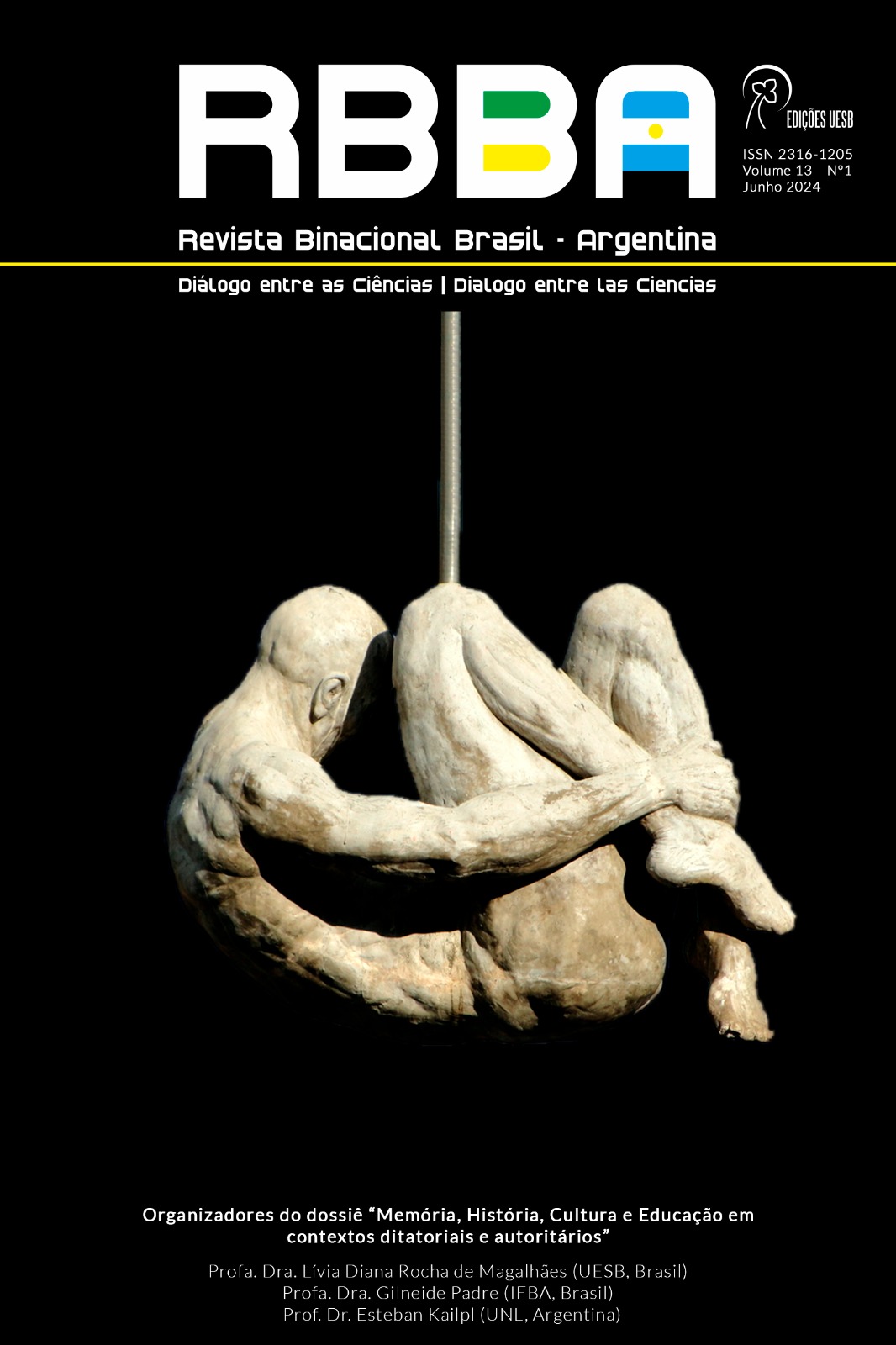Analysis of teaching innovation projects: fundamental elements for their elaboration. Do our Projects have the elements of an innovation?
DOI:
https://doi.org/10.22481/rbba.v13i01.14746Keywords:
Innovative projects, Innovative elements, Content analysis, Learning ParadigmAbstract
This research evaluates university innovation projects, using qualitative tools to identify elements that stand out for their theoretical-practical integration.
A total of 16 innovation projects were reviewed and their coordinators interviewed. The data were analyzed using qualitative methodology - content analysis - where the elements from the teaching paradigm and the learning paradigm were identified.
As a result of the content analysis, a greater weight of the theoretical dimension emerges over the practical one in the approach of the Curricular Innovation Projects (CIP), with the category "Student Protagonist" (24.5%) being the one with the greatest presence, although with a percentage well below the percentage average, which seems to respond to the wishes of the work teams. but we don't know if it's due to their developments.
It concludes that it is necessary to establish criteria for the presentation of innovative projects and the preparation of an evaluation form with indicators that guide their assessment (approach, development and evaluation). The development of innovative projects will favor the transition to the learning paradigm and the training of students who look to the transformation of their contexts.
Downloads
References
AGUERRONDO, I. Planificación educativa y complejidad: gestión de las reformas educativas. Cadernos de Pesquisa [online], 44 (153), 548-578, 2014.
BARDIN, L. Análisis de contenido. Madrid: Akal, 1996.
BOLÍVAR, A. Construir localmente la capacidad de mejora: Liderazgo pedagógico y Comunidad Profesional. Ponencia XIII Congreso Nacional de Investigación Educativa. México, 2015.
BLANCHARD, M. y MUZÁS, M. D. LOS PROYECTOS DE APRENDIZAJE. UN MARCO METODOLÓGICO CLAVE PARA LA INNOVACIÓN. Madrid: Narcea, 2016.
BLANCO, R. y MESSINA, G. ESTADO DEL ARTE SOBRE LAS INNOVACIONES EDUCATIVAS EN AMÉRICA LATINA. Santiago de Chile: Convenio Andrés Bello, 2000.
CASASOLA RIVERA, W. El papel de la didáctica en los procesos de enseñanza y aprendizaje universitarios. Revista Comunicación. Año 41, volumen 29, número 1, enero-junio, 2020. Instituto Tecnológico de Costa Rica. ISSN: 0379-3974 / e-ISSN1659-3820.
DARLING-HAMMOND, L., & COOK-HARVEY, C. M. Educating the whoe Child: Improving School Climate to Support Student Success. ASCD, 2018.
DELGADO MARTÍNEZ, L. M. Aprendizaje centrado en el estudiante, hacia un nuevo arquetipo docente. Enseñanza & Teaching: Revista Interuniversitaria De Didáctica, 37(1), 139–154, 2019. https://doi.org/10.14201/et2019371139154
HARGREAVES, A. y O´CONNOR. Collaborative Profesionalism: When Teaching Measns Learning for all. Crowin Press, 2018.
IMBERNÓN, Francisco En busca del discurso perdido. Buenos Aires: Magisterio del Río de la Plata, 1996.
INGERSOLL, R., MERRILL, L. y STUCKEY, D. The Role of teachers in Educational Reform. Philadelphia: University of Pensnsylvania Pres, 2021.
LIBEDINSKY, M. La innovación educativa en la era digital. Paidós: Buenos Aires, 2016.
LUCARELLI, E. Prácticas innovadoras en la formación del docente universitario. Educação, 3 (54), 503-524, 2004.
LUCARELLI, E. Teoría y práctica en la universidad. La innovación en las aulas. Buenos Aires: Miño y Dávila Editores, 2009.
MACHIAROLA, V. Rupturas en el pensar y el hacer. Políticas y prácticas de innovación educativa en la universidad. Río Cuarto: UniRío Editora, 2012.
MONEREO, C. y POZO, J. ¿En qué siglo vive la escuela? El reto de la nueva cultura educativa. Cuadernos de Pedagogía Nº 298. Enero 2001.
MOREIRA, C.; ABUZAID, J.; ELISONDO, R.; MELGAR, M. Innovaciones educativas: perspectivas de docentes y estudiantes de la Universidad Nacional de Río Cuarto (Argentina) y la Universidad del Atlántico (Colombia) Panorama, vol. 14, núm. 26, 2020. Politécnico Grancolombiano, Colombia. Disponible en: http://www.redalyc.org/articulo.oa?id =343963784003.
MURILLO, J. Y KRICHESKY, G. El proceso de cambio escolar. Una guía para impulsar y sostener la mejora de las escuelas. Revista Iberoamericana sobre Calidad, Eficacia y Cambio en Educación (2012) - Volumen 10, Número 1.
MURILLO, F.J. Y MUÑOZ-REPISO, M. (Coords.) La mejora de la escuela: un cambio de mirada. Barcelona: Octaedro, 2002.
MURILLO, F. J., & KRICHESKY, G. J. Mejora de la Escuela: Medio Siglo de Lecciones Aprendidas. REICE. Revista Iberoamericana Sobre Calidad, Eficacia Y Cambio En Educación, 13(1), 2015. https://doi.org/10.15366/reice2015.13.1.005
PRIETO NAVARRO, L. (Coord.) La enseñanza universitaria centrada en el aprendizaje. Estrategias útiles para el profesorado. Barcelona: Ediciones Octaedro – ICE, 2008.
RIVAS, A., ANDRÉ, F., DELGADO, L., AGUERRONDO, I., ANIJOVICH, R., FURMAN, M., ... & VOTA, A. 50 innovaciones educativas para escuelas. Lima: Centro de Implementación de Políticas Públicas para la Equidad y el Crecimiento, 2017. Recuperado de: https://www.cippec.org/wp-content/uploads/2017/08/ 978-950-46-5369-1-CIPPEC-50-Innovaciones-educativas.pdf
RÍOS MUÑOZ, D. y REINOSO HERNÁNDEZ, J. Proyectos de innovación educativa. Universidad de Santiago de Chile, 2008.
TOLEDO MORALES, P. y SÁNCHEZ GARCÍA, J.M. Aprendizaje basado en proyectos: una experiencia universitaria. Profesorado: Revista de curriculum y formación del profesorado, 22 (2), 429-449, 2018.
UNESCO. Reimaginar juntos nuestros futuros. Un nuevo contrato social para la educación, 2021.
ZABALZA, M. Innovación en la enseñanza universitaria. Contexto Educativos, 6 (7), pp.113 – 136, 2024. Recuperado de http://www.redalyc.org/pdf/848/84819191002.pdf
WAGNER, T. Y DINTERSMITH, T. The innovation Schools. San Franciso: Jossey-Bass, 2018.
ZHAO, Y. What Works May Hurt: Side Effects in Education. New York. Teachers College Press, 2020.
Downloads
Published
How to Cite
Issue
Section
License
Copyright (c) 2024 Revista Binacional Brasil-Argentina: Dialogue between the sciences

This work is licensed under a Creative Commons Attribution 4.0 International License.






